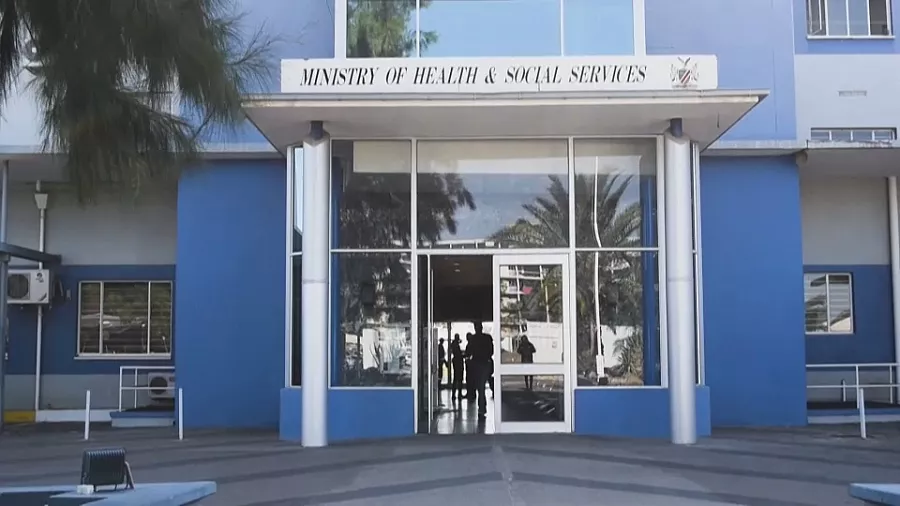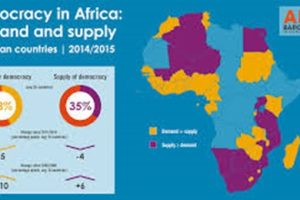When Alejandra Angula discovered she was pregnant, she panicked. She had not unplanned the pregnancy. Dismayed at the lack of options in her home country, Angula flew to neighbouring South Africa and booked into an abortion clinic in Cape Town.
“I was more scared of having a baby and being forced into parenthood than of the procedure,” said the 29-year-old IT worker, who asked for her name to be changed for the purposes of this article.

“Given how desperate I was… I would’ve tried any other means” to abort, she said.
Other Namibian women who don’t desire to continue their pregnancy cannot do the same as Alejandra.
Unable to afford a plane ticket, many take hours-long bus rides to cross the border and secure a legal abortion. The more desperate risk dangerous backstreet terminations.
“We receive a lot of cases of women travelling from Namibia,” said Blum Khan, country director at Marie Stopes International (MSI), a non-profit organisation running sexual and reproductive healthcare clinics in South Africa.
Some arrive suffering from “haemorrhaging or other harm” after botched illegal abortions, he said.
“Women are risking their lives.”
Maria Kamati, a nurse at the Reproductive Justice Coalition campaign group in Windhoek, told AFP that limited knowledge about contraceptives left many women exposed to unplanned pregnancies.
“Some of them go and try to do backdoor abortions,” leading to health problems or even death, Kamati said.
Reform?
Some hope change is coming. In 2020, over 63,000 people in a country of 2.6 million Namibians — signed a petition calling for an overhaul of the abortion ban.
The government has since held countrywide public hearings, enabling citizens to weigh in on the debate.
The “motion in parliament was (to) let us discuss, let us be open about it, and the discussions will inform what the right decision will be,” Esther Muinjangue, the deputy minister for health, told AFP.
A report will be submitted to parliament for discussion, she said.
The timeline for the document — and the details of any reform — is not yet clear.
“I am hopeful that policymakers will take medical advice and evidence of unsafe abortions happening anyway, into account and make abortion accessible to all,” she said.
Under the current legislation, abortions in Namibia are permitted only in a few cases, including when the pregnancy is the result of incest or rape, or is thought to endanger the mother’s life.
The Abortion and Sterilization Act of 1975 is a relic from South Africa’s apartheid era, when Namibia was controlled by its now-neighbour.
South Africa eventually adopted more liberal regulations after the advent of democracy in the 1990s, but Namibia did not.
Some the women who cannot get an abortion often end up abandoning their babies in private or public spaces.
More than 234 newborns whose pregnancy was unintended were left this way between 2016 and 2022, according to police figures.
About 50 landed in a “baby box” purposely set up in 2018 by the Ruach Elohim Foundation in the coastal city of Swakopmund, according to the non-profit.
“Baby dumping” was so widespread that in 2019 the country passed a law saying that women who safely drop off their child with the police or at designated safe houses will no longer face prosecution.
Opposing views
The discussion around abortion comes against the backdrop of other reform debates including the legalisation of same-sex relations and marriage.
Namibia’s rules could come as a surprise in a country ranked among the top 10 in the world for gender parity in a 2022 World Economic Forum report index, having achieved good levels of female participation in education, politics and work.
Conservative views persist in what is largely Christian nation.
“Each person is designed by God to be born,” Windhoek-based pastor James Wallace told AFP on the sidelines of a parliamentary committee hearing on abortion.
Yvonne Lipenda, a young woman who also attended the hearing, had a different view: “Reproductive justice”.
“I need to be able to make a choice about my body,” she said.
Source: AFRICAN NEWS



















Add Comment